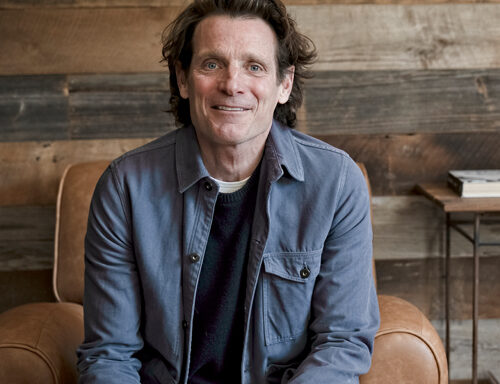7 HR job interview questions HR leaders should ask to build a future-focused team

As interviewers go, HR and People leaders are well-versed pros.
Whether it’s through climbing the ladder yourself, prepping mentees, interviewing candidates, or managing those within the talent team – you know interviewing like the back of your hand.
However, when hiring for your own team, do you ask all the right questions to make sure you bring on board the right people not only for today, but for the future?
Hiring for your own team isn’t necessarily easier than contributing to the hiring process of other departments. The questions you might have asked in an interview for someone else’s team largely go out the window, and you have to get down to the fine details of what your HR candidate could bring to the team from a competency and skill perspective, and ask all these questions in a short space of time.
So, what questions should you ask to make sure you know you’re hiring the right person for your HR team? How can you gauge whether their skills will fit your team? And most importantly, how can you judge their future potential, and ultimately that of your future HR team?
Your expertise and knowing what you need from the candidate plays a big part, of course, but when it comes to specific questions, we have a few suggestions. Let’s take a look…
Question 1: “Tell me about a time you felt overwhelmed by your workload and what you did to remedy it.”
During the COVID-19 pandemic, 60% of HR leaders said they experienced an increase in their workload, so its inevitable HR and People professionals across the world were experiencing similar challenges.
It highlighted the intense pressure and number of priorities that HR leaders are expected to juggle – but also helped many to change and adapt to support their people, enabling their organization to become more resilient as a result. However, we know there will always be challenges ahead.
If your candidate helped to guide their current organization through the pandemic, they may have a great story about how they managed to handle this transition and some good skills to be agile and resilient in any future crisis they may come across.
Question 2: “What’s your experience working with HR software?”
HR technology is no longer just a nice to have but is an essential in every HR teams’ toolkit for driving their organization forward.
In fact, 59% of c-suite and HR leaders say HR is even more focused on digital transformation as a result of the pandemic; so not investing could leave organizations behind, we found in our research.
Also, 40% of People leaders feel HR is lagging in digital skills. That’s why it’s important to make sure your candidate has worked with HR technology solutions compatible with the ones your organization uses.
Some red flags might be if your candidate has only worked with very specific types of systems, or is only experienced with outdated technology. However, this shouldn’t be a deal-breaker: it may simply mean your candidate requires some on-the-job training. Provided they’re not going for a system-based role and show a willingness to learn, especially as technology changes so rapidly, you might find their experience satisfies your team’s need enough.
Question 3: “What do you think the role of HR will be in five years’ time and where do you see yourself?”
We know the world of HR is changing – and fast. While this is a traditional interview question, it gives you scope to find out not only the interviewee’s viewpoint on how they think the role of HR will change, but also how they will adapt to respond to these changes.
Typical sorts of responses to the first part of this question could highlight the transition from HR to People; the increasing importance of technology (such as automation); the need to develop agility in HR; and the recognition of the role of new skills in areas like analytics and employer marketing.
Depending on their answer to the first part of the question, in five years’ time they might look to be in a more senior position or specialize in one of the areas they’ve identified that will be likely to change, for example.
As a follow up question, you could ask your candidate what first-hand experience they have in these areas.
Member Masterclass: Talks from the world's leading experts
Learn how to find and keep great people. All Sage customers and partners have automatic access to Sage Membership, which includes Member Masterclass. For a limited time, this member resource is open to everyone.

Question 4: “Tell me about a time where you’ve needed to be creative in your HR role.”
How many times have you looked over a new HR initiative and thought it needs a punchier name or could do with a bit more creative flair?
Just 28% of HR leaders rate their own creative skills as expert but they also recognize that it’ll be a top skill for the future, with 73% of HR leaders believe creativity is one of the top four skills they’ll need to get ahead. If your candidate is able to demonstrate a creative flair and an aptitude for this way of thinking, your team will be able to get ahead of the game.
Listen carefully to how the candidate answers this question. Look out for those who demonstrate out-of-the-box thinking and innovation, to spot the skills they may have that could benefit your team.
Question 5: “How do you see your HR role fitting in to the wider business strategy?”
We’ve said it before, but we’ll say it again – a great HR strategy should link up seamlessly with the overall business strategy.
This means that those in your team also need to have an interest in how their HR and People skills effects the overall business strategy, and what they can bring to the table. With 57% of c-suite executives still seeing HR as a largely administrative function, there’s a lot to do in this area.
By asking this question, you should be able to grasp a good idea of what their business strengths are alongside their HR skills. For example, are they able to understand how their experience initiatives powers productivity, and how that leads to profit? Are they analytically savvy and understand how People data connects with the financials?
If they can demonstrate how the HR function and their role within it effects the business strategy, then you likely have someone with good business acumen, as well as strong HR knowledge.
Question 6: “What do you like least about HR and what would you change about it if you could?”
This is often a really challenging question for an interviewee – you’re effectively asking them to pick out a negative aspect of the job or the industry that they’re interviewing for. However, the way your candidate responds to this question could tell you a lot about them.
Effectively, you’ll likely find out one of two things. If they go down a road of negativity about all the things they despise about their job, it could be a sign they don’t have much passion for HR. However, if they can recount how they would fix the problem, this could be a good demonstration of their problem-solving skills.
Better still, if your candidate identifies a similar problem to the one your organization faces, it could give you a sign they’ve done their research. If they got the job, it could then be a good starting point for the two of you to work together to fix the problem once and for all.
Question 7: “What question would you ask me if you were the interviewer?”
Finally, an oldie but a goodie – this is your candidate’s opportunity to demonstrate leadership, on-the-spot thinking and a chance for them to learn a bit more about you, the interviewer.
This is a great question to ask, especially if you’re hiring someone for a talent acquisition role, as it will give them a chance to demonstrate some of their own interviewing technique.
Some of the best responses to this question include, “If you could change one thing about this company right now, what would it be?” and “if you were able to double your team’s budget, what would be the first thing you’d spend it on?”
By asking this question, they gain some insight into you as the interviewer and the company.
Deliver great candidate experiences to get the best talent for tomorrow
Getting the right candidates through the door is hard but finding a great one is even harder – and that’s for all candidates, not just HR. Asking the right questions at interviews is a vital part, but it’s just one stage of the entire process.
To attract and keep a great relationship with candidates throughout the process, look for software that can automate parts of the recruitment process, gather feedback in one single place and view in real-time and, once they’re hired, impress them with early access to self-service, forms and personalized communications.
To get the best talent through the door, you need to offer the great candidate experiences – are you?
59% of HR leaders now feel they’re playing a more strategic role. Are you? ? Explore the research report from over 1,500 HR leaders, c-suite execs and employees to understand the changing expectations and perceptions of HR.







Ask the author a question or share your advice